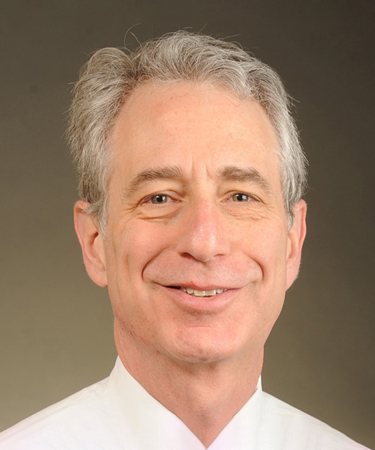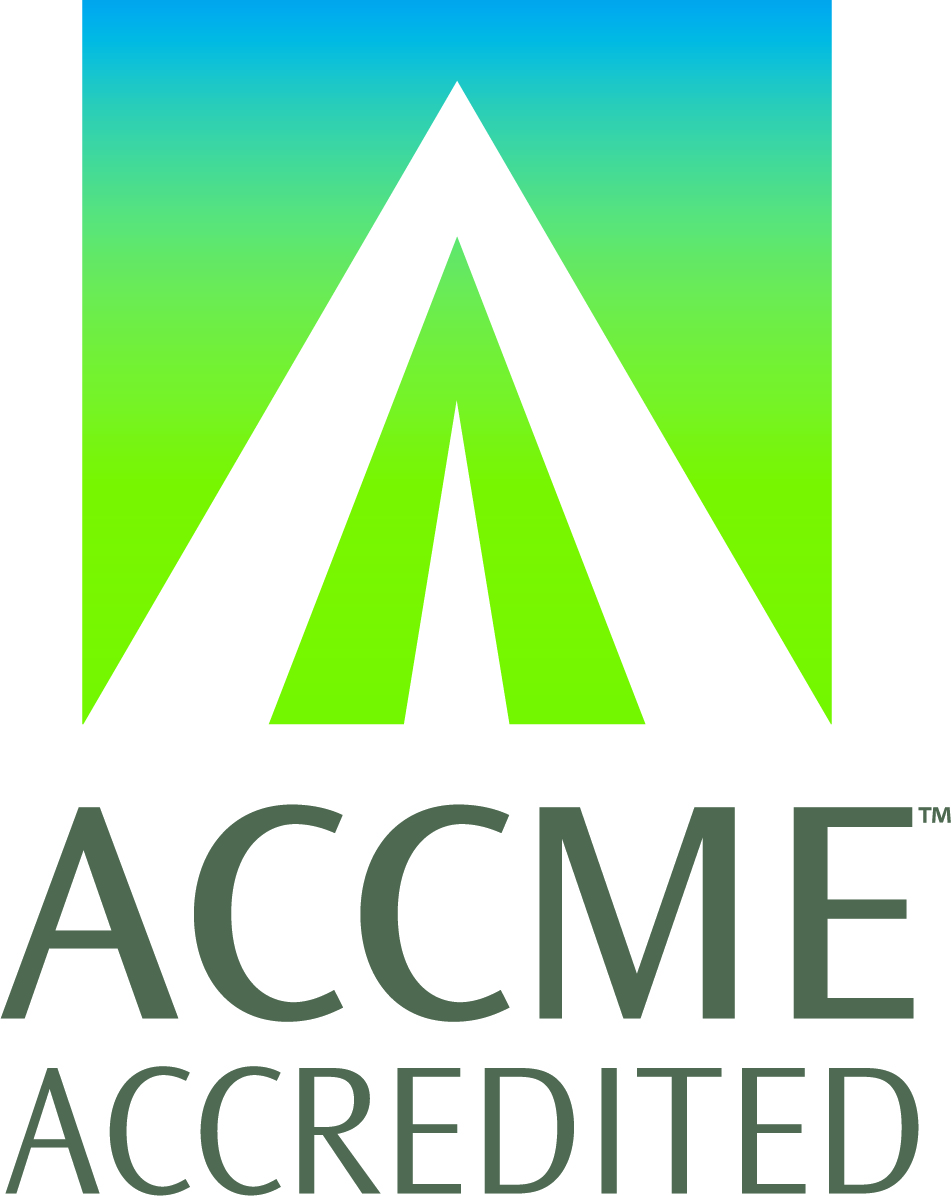Monday June 12, 2023 –
Thursday June 15, 2023
7:30am-12:50pm EST
Event Details
When
Where
Lido Beach Resort
Sarasota, Florida
Event Code
SEMLA-3720230612
Course Topics
Day 1
Anemia – A Finding, Not Yet a Diagnosis (Muncie)
Upon completion of this session, using the Cochrane Abstract Database and AAFP Guidelines, the participant should be able to: EBM,GL, COMP
- Distinguish the etiologies for the common anemias.
- Construct the diagnostic evaluation to determine the etiology of each anemia.
- Develop the therapeutic options for each identified anemia.
- Formulate the appropriate follow-up evaluations for assessing the treatment efficacy.
Thyroid Dysfunction: Evaluation and Treatment (Muncie)
Upon completion of this session, using the American Thyroid Association Guidelines and the Cochrane Abstract Database, the participant should be able to: EBM,GL, COMP
- Integrate the serum tests for thyroid function.
- Interpret thyroid tests results that occur in clinical settings.
- Recommend the appropriate follow-up testing of abnormal thyroid tests and the frequency of these evaluations.
- Appraise the need to treat subclinical hypothyroidism or subclinical hyperthyroidism.
Contraception (Nelson)
Attendees of this presentation will be able to:
- Discuss the contribution contraception makes to women’s health.
- Describe barriers to successful contraceptive use.
- Counsel women on the safety and efficacy of each of the current methods in typical use.
- Outline approach to implement the US MEC and Selected Contraceptive Practices in practice.
Diagnosis and Treatment of Heavy Menstrual Bleeding (Nelson)
Attendees of this presentation will be able to:
- Utilize FIGO definitions for normal and abnormal bleeding and the PALM-COIEN classification system.
- Explain the evolution of menstruation in humans and defects that could disrupt controls of blood loss.
- Describe the work-up of a woman with acute or chronic HMB personalized to her risk factors and clinical presentation.
PCOS (Nelson)
Attendees of this presentation will be able to:
- Discuss the Rotterdam diagnostic criteria and differential diagnoses for PCOS.
- Tailor therapies to meet the individual needs of women with PCOS.
- Outline remaining controversies and potential future changes
Day 2
Perimenopause and menopause (Nelson)
Attendees of this presentation will be able to:
- Counsel women about the endocrinologic changes that occur during perimenopause and menopause.
- Identify any differences seen in different ethnic groups – both physiologically and culturally.
- Describe how those changes can affect current symptomatology and long-term health.
- Outline therapeutic options from lifestyle changes to over-the-counter medications to prescription drugs (nonhormonal and hormonal) for each of the manifestations of perimenopause and menopause
Breast cancer screening and prevention (Nelson)
Attendees of this presentation will be able to:
- Identify facts that increase a woman’s risk for developing breast cancer.
- List methods for screening women for early breast cancer and explain the implications of early or more frequent breast cancer screening tests.
- Counsel women on preventive measures available to reduce the risk of breast cancer among those with moderate to high risk estimates.
GYN cancer screening and prevention (Nelson)
Attendees of this presentation will be able to:
- Identify risk factors and clinical presentations for each of those cancers
- Suggest prevention strategies to reduce risks of each of those cancers.
Diagnosis and management of Type 2 Diabetes (Muncie)
Attendees of this presentation using the American Diabetes Association, the European Association for the Study of Diabetes Guidelines and the Cochrane Abstract Database and current literature, should be able to:
- Delineate a treatment plan for preventing type 2 diabetes.
- Compare the options for diagnosing type 2 diabetes
- Evaluate the therapeutic goals in treating type 2
- Diabetes and their impact on morbidity and mortality.
- Recommend the approach for choosing an oral hypoglycemic agent to treat type 2 diabetes.
- Compare the cardiovascular effects of the current oral treatment options for type 2 diabetes
- Specify the clinical situations that would require the use of insulin to treat type 2 diabetes and the probable dosage form and average amounts required for control of A1c.
- Develop the therapeutic options for preventing diabetic complications.
Treatment of depression and anxiety in primary care (Muncie)
Attendees of this presentation using the APA Guidelines, the Cochrane Abstract Database and current literature, should be able to:
- Describe and compare the diagnostic instruments for diagnosing depression and GAD
- Apply the initial treatment algorithm for endogenous depression.
- Describe the common side effects associated with pharmacologic treatment of endogenous depression.
- Compare and contrast the diagnostic criteria for GAD.
- Compare the side effect profiles for the current 6. armacologic treatment of GAD
- Employ the current literature for when to refer a patient with depression or GAD to a psychiatrist
Day 3
Suicide and Violence (Zun)
Attendees of this presentation should be able to:
- Analyze the process to evaluate patients for risk of suicide
- Determine the difference between suicide screening and suicide risk assessment
- Formulate the next steps after risk assessment, including discharge
- Employ strategies to reduce incidence of violence in healthcare institutions
Substance abuse (Zun)
Attendees of this presentation should be able to:
- Evaluate the risk factors leading to substance abuse and addiction
- Utilize several screening tools for substance abuse and addiction
- Review the medical and psychiatric consequences and comorbidities of substance abuse
- Utilize biological and psychosocial treatments for substance abuse
Diagnosis and treatment of recurrent headaches – migraine, tension, cluster (Muncie)
Attendees of this presentation using the International Headache Society and U.S. Headache Consortium Guidelines and the National Guideline Clearinghouse, the evidence-based reports from Clinical Evidence and current literature, should be able to:
- Construct the approach for evaluating a patient with recurrent headaches.
- Compare and contrast the initial therapies for migraine headaches
- Assess the advantages of supportive therapy and lifestyle changes in treating migraine headaches compared to pharmacologic therapy.
- Appraise the pharmacologic options for treating the acute pain of a migraine headache.
- Recommend a prophylactic therapy regimen for patients with recurrent migraine headaches
- Differentiate the symptoms associated with migraine, tension and cluster headaches.
Treatment of Sexually Transmitted Infections (Muncie)
Upon completion of this session, using the CDC Guidelines and the Cochrane Abstract Database, the participant should be able to: EBM,GL, COMP
- Determine the appropriate diagnostic testing for complaints suggestive of a sexually transmitted infection.
- Select the therapy for the commonly encountered sexually transmitted infections.
- Formulate the follow-up testing and evaluations for sexually transmitted infections.
- Recommend the therapeutic options for preventing herpes simplex infections.
Management of Benign Breast Disease (Muncie)
Upon completion of this session, using the American Cancer Society Guidelines and the Cochrane Abstract Database, the participant should be able to: EBM,GL, COMP
- Differentiate the signs and symptoms associated with benign breast disease.
- Formulate an evaluation for breast pain (mastalgia), breast lumps, and nipple discharge.
- Specify the treatment options for breast pain, nipple discharge and breast infections.
- Distinguish the symptoms and physical findings associated with rare benign breast disease conditions.
Day 4
Provider Wellness (Zun)
Attendees of this presentation should be able to:
- Identify and define stress and how it affects us
- Differentiate, diagnose and treat PTSD and Burnout
- Understand and deal with the affects of COVID on physician wellness
Dealing with Difficult Patients (Zun)
Attendees of this presentation should be able to:
- Describe why some patients and family members might be difficult to deal with difficult people
- Recognize and respond to difficult individuals identify various types of difficult people
- Implement techniques to deal with difficult patients and family members
- Evaluate how medical and psychiatric illness affects difficult people
Osteoporosis: Treatment and Prevention (Muncie)
Upon completion of this session, using the USPSTF, NOF Guidelines and the Cochrane Abstract Database, the participant should be able to: EBM,GL, COMP
- Debate the importance of the risk factors for an osteoporosis fracture.
- Employ the diagnostic testing for patients at risk with osteoporosis.
- Select the therapeutic medication to treat osteoporosis based upon the indications and side effects.
- Assess the therapeutic role of repeating the DXA scan in patients treated for osteoporosis.
Screening for disease prevention and immunizations in primary care (Muncie)
Attendees of this presentation using the USPSTF and Cochrane Abstract Database and current literature, should be able to:
- Apply the evidence-based recommendations for preventive screening tests for adults.
- Determine the immunizations required for adults.
- Appraise the side effects of adult immunizations.
- Select the contraindications for each adult immunization and their alternative therapy.
- Plan when screening tests can be discontinued in adults.
Evaluation and Treatment of Ischemic Heart Disease in Women (Muncie)
Upon completion of this session, using the American College of Cardiology, the American Heart Association, the USPSTF Guidelines and the Cochrane Abstract Database, the participant should be able to: EBM,GL, COMP
- Differentiate the symptoms that women with coronary artery disease (CAD) exhibit in contrast to those experienced by men.
- Recommend the evidence-based interventions to prevent CAD in women.
- Formulate the recommendations to treat the risk factors for CAD in women.
- Specify the treatment required for women with proven CAD.
Hotel Reservations
Hotel Reservation Link
To arrange your stay, please use the above “Hotel Reservation Link.”
The special room rate will be available on a first come first serve basis until the group block is sold-out.
-
-
- Register by May 11,, 2023 to take advantage of preferred rates.
- Save $9 on reduced resort fee. Reduced from $29 to $20 per room, per day.
- Free self-parking for AMS guests.
- Automatic raffle entry with registration.
-
Rent a Car with Enterprise or National:
To book your CME conference car rental and to receive special rates exclusively for AMS attendees, you may call or book online with our contracted companies, Enterprise/National
About the Venue
Lido Beach Resort
Sarasota, Florida
Nestled on a private white sand beach on Florida’s Gulf Coast, Lido Beach Resort offers a serene escape with picturesque views, two heated pools, and resort amenities perfect for romantic getaways, family vacations, and peaceful retreats.
Things to Do
Sarasota, Florida
Sarasota offers a truly impressive blend of shopping, cuisine, and attractions. So sail into a breathtaking sunset, golf on lush green fairways, explore St. Armands Circle, or just relax and sink your toes into some of the finest sand in the world.
White sand beaches
21 Zagat-rated restaurants
MLB spring training
Museums, theaters, and festivals
Dozens of golf courses
Immerse Yourself In Sarasota
Let us help with your area attractions and things to do. As one of the top family vacation destinations in America, Sarasota is renowned for its cultural and environmental amenities. Not only are we home to the #2 beach in the United States as voted by TripAdvisor in 2022, but Sarasota is a mecca for patrons of the arts and has the highest concentration of Zagat® rated restaurants in Florida. It’s no wonder Sarasota was ranked one of the Top 100 Best Places to Visit in Florida in 2022 by US News and World Report.
Sarasota offers a truly impressive blend of leisure, shopping, remarkable cuisine and popular attractions. As Florida’s cultural capital, you can’t go wrong with our museums, plays, symphony, or Sarasota’s very own opera house.
So sail into a breathtaking sunset, golf on lush green fairways, explore unspoiled fishing waters or just relax and sink your toes into the finest beach sands in the world.
If you’re not grabbing your sunblock already, keep reading about all that Sarasota has to offer.
Sarasota Beaches
With numerous beaches to choose from, the most notable being Siesta Key Beach with its quartz crystal, powdered sugar white sand. For those who prefer to go shelling, try out Lido Key or take a short drive to Venice Beach to hunt for fossilized shark’s teeth.

Area Attractions
From aquariums to a spring training baseball game and botanical gardens to airboat tours of gators in their natural habitat, there is something for everyone! Make sure you check out the events calendar for annual traditions including our very own Chalk Festival and the Siesta Key Master Sand Sculpture Contest.

Dining
Whether you prefer fine dining, beachfront or lighter fare, Sarasota has the highest concentration of Zagat® rated restaurants in Florida. Our award-winning dining overlooks world-class beaches, and stunning skylines, and fills downtown Sarasota. Many offer outdoor dining that can be enjoyed year-round!

Arts & Culture
The historical John and Mable Ringling Museum of Arts is the state art museum of Florida. These palatial grounds are home to a world-renowned collection of Rubens, the Circus Museum, Ca’d’Zan, Ringling’s Mansion, and Bayfront Gardens. You will also find the historic Asolo Theater on the premises. But that’s not all, Sarasota’s performing arts rival those of much larger cities.

Sports & Outdoor Activities
Voted as 2014’s Best Sport Friendly Vacations Destination by Sports Events Magazine, Sarasota and the surrounding area has over 25 golf courses, a world-class aquatics, and rowing facility, and one of the largest polo clubs in the country! Whether paddle boarding in the Sarasota Bay or running the Legacy Trail, you’re sure to find something that gets your heart racing!

Shopping
Whatever your shopping preferences are, Sarasota has something to suit your needs. Spend the afternoon in historical St. Armand’s Circle, visit the Ellenton Outlet Mall just 20 minutes North or enjoy our newest addition- the high-end shops of University Town Center (more than 100 stores).

Presented By

Herbert Muncie, Jr., MD
Professor of Family Medicine, Department of Family Medicine, Louisiana State University Health Sciences Center School of Medicine; New Orleans, LA

Leslie Zun, MD, MBA
Professor, Departments of Emergency Medicine and Psychiatry, Rosalind Franklin University of Medicine and Science/Chicago Medical School; Chicago, IL

Anita Nelson, MD
Professor of Obstetrics & Gynecology, Western University of Health Sciences; Professor Emeritus Obstetrics & Gynecology, David Geffen School of Medicine at UCLA; Medical Director of Research, Essential Access Health; Los Angeles, CA
Accreditation
American Medical Seminars, Inc. designates this live activity for a maximum of 20 AMA PRA Category 1 Credits™. Physicians should claim only the credit commensurate with the extent of their participation in the activity.
AAFP
The AAFP has reviewed Women’s Health For Primary Care And Emergency Medicine and deemed it acceptable for up to 20.00 Live AAFP Prescribed credits. Term of Approval is from 06/12/2023 to 06/15/2023. Physicians should claim only the credit commensurate with the extent of their participation in the activity.
Accreditation Statement
Webinar Details
Live Webinar Access Information:
Webinars are held via zoom and the Wednesday prior to the conference start date, an email will be sent with the zoom link.
Open For Registration
Cancellation & Refund Policy
We understand that plans may change. Please review our cancellation and transfer options below:
30+ Days Before Conference Start Date
- Refund: Full refund minus a $50 processing fee.
- Transfer: Registrations can be transferred once, at no cost, to another conference within two years. Alternatively, registration may be placed “on hold” for up to 12 months, allowing participants to choose a suitable conference for transfer within that period.
Less Than 30 Days Before Conference Start Date
- Refund: No refunds available.
- Transfer: Registration may be transferred to another conference within 2 years at no cost. Alternatively, registration may be placed “on hold” for up to 12 months, allowing participants to choose a suitable conference for transfer within that period.
Additional Notes
- No-shows are non-refundable and non-transferable.
- If we cancel a conference, you may choose a full refund or transfer to another event.
On-Demand Courses
- All sales are final. No refunds or transfers.
Invitation Letters
If American Medical Seminars issued you an Invitation Letter to attend a CME conference in the United States and you need to cancel your registration, we will only refund 50% your registration fee. This is to cover the cost of your Invitation Letter and processing costs. By registering, you agree to the non refundable portion of the registration.
Disclaimer
In the event that AMS is required to cancel a live conference, registrants will receive a full refund within 7 business days. AMS is not responsible for charges associated with cancelled flights or hotel rooms.
How to Request a Cancellation or Transfer
Requests must be submitted in writing to mail@ams4cme.com or by calling 1-800-267-4263.
Note: By registering, you agree to this policy.



